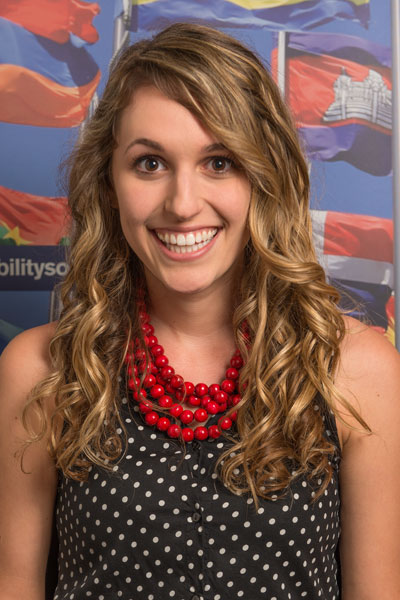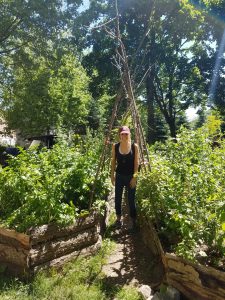
Embracing Ignorance
While in Copenhagen my study abroad team surveyed and interviewed people involved in urban agriculture. We studied urban gardens with a diverse array of characteristics including for-profit and non-profit, school rooftops with limited accessibility and private apartment courtyards, and public parks accessible to all. We had the opportunity to explore these gardens through guided tours where we tasted, smelled, touched and heard the ecosystem. Through structured research, mindful observations and casual conversations with urban agriculture stakeholders we compiled a portrait of urban agriculture in Copenhagen. We only were able to interact with five urban gardens on an in-depth level and there is no accurate count of how many gardens currently exist in the city so our findings are not statistically significant. However, we collected interesting data and stories that appeal to the urban human condition.
For example, the non-profit gardens we visited prioritized social outcomes of connection and inclusivity over production. A representative from one of the gardens we visited said, “Value isn’t in the vegetables, it’s in the people.” Another garden’s tagline is, “Where people and plants grow together.” Ecological balance was a teaching topic and principle of most gardening practices we observed. However, it was not the focus of any garden. Gardens can provide an invitation for people to sit and enjoy urban life when made accessible to the public.
 Open green space also provides figurative and literal space for different types of people to interact. For example, one garden in Copenhagen was created in a space previously occupied by the “local alcoholics” (as they are referred to by residents). Instead of trying to kick out this group of people, garden leaders welcomed these residents and, over time, built relationships. Now these folks are a critical part of the garden’s day to day operations and donate to the garden even though there are no membership fees. However, some stakeholder groups like kids learning about gardening and Muslim women harvesting herbs may not be comfortable around men drinking alcohol (Denmark has no open container laws). Thus, garden leaders maintained their values of inclusion and planned events for children in the morning before less compatible stakeholder groups were typically awake and active in the garden. Instead of giving up and opting for the short-term easier solution of exclusion, garden leaders co-created a logical solution. In a good city, there is space for everyone and gardens can help create a feeling of inclusivity and love for all types of people.
Open green space also provides figurative and literal space for different types of people to interact. For example, one garden in Copenhagen was created in a space previously occupied by the “local alcoholics” (as they are referred to by residents). Instead of trying to kick out this group of people, garden leaders welcomed these residents and, over time, built relationships. Now these folks are a critical part of the garden’s day to day operations and donate to the garden even though there are no membership fees. However, some stakeholder groups like kids learning about gardening and Muslim women harvesting herbs may not be comfortable around men drinking alcohol (Denmark has no open container laws). Thus, garden leaders maintained their values of inclusion and planned events for children in the morning before less compatible stakeholder groups were typically awake and active in the garden. Instead of giving up and opting for the short-term easier solution of exclusion, garden leaders co-created a logical solution. In a good city, there is space for everyone and gardens can help create a feeling of inclusivity and love for all types of people.
I hope these stories from Copenhagen inspire you no matter your location or interest in urban agriculture. Narratives like these speak to the essence of what it means to be human. We all seek connection and gardens can help create space for this to happen. Contrarily, gardens can also further enhance separation between people or aggravate existing tensions. In Aarhus, the second largest city in Copenhagen, I visited a “community” garden that failed to engage the community its leaders claimed to serve. This garden serves as an example of neutral or negative outcomes from good intentioned, smart people who want to help provide greenspace to a community who has high rates of physical and mental illness. The reductive seduction of other people’s problems is a dangerous trap. Leaders of this garden do not represent the community they work in and want to work for. From what I’ve seen in community work in the States and here in Denmark, providing solutions for a community instead of serving as a resource for communities to solve their own problems typically creates more issues than it solves.
This experience reminds me that I don’t usually know what is best for others. The best I can do is to support others physically, mentally, emotionally and spiritually while asking perspective-shifting questions. Sometimes empathy is better than expertise.

